Students’ biographies
Click on the images to view the biographies of the students involved in the Re-Centring AfroAsia project:
HONOURS STUDENTS
MASTERS STUDENTS
PHD STUDENTS
POSTDOCTORAL RESEARCHERS
Eshcha Adams
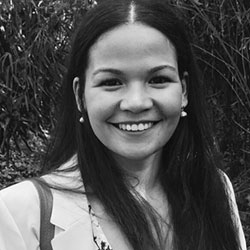
University of Cape Town
Eshcha Adams is a dance educator and aspiring academic research student based at the South African College of Music, University of Cape Town. Her background is in dance education and dance studies, and she holds a Bachelor of Music (Dance) degree from the University of Cape Town. She is a member of the Recentring AfroAsia project and is currently completing her Honours degree in Musicology.
Eshcha has a keen interest in women’s studies and education, with an emphasis on dance and music. Her research focus is on how women were educated in pre-colonial Mombasa, Kenya. She is interested in the various female figures in the region and era, how they were educated, and what their roles in society were. She wishes to contribute towards the uncovering and advancement of Indigenous Knowledge Systems as she believes that this is particularly significant in our contemporary social milieu in which ‘decolonising’ the curriculum is significant.
In July 2017 Eshcha undertook a short fieldwork trip to Kenya, where she learned a great deal. She is proud to be a member of the RAA cohort and hopes that her research will positively contribute to the development of a model of indigenous education.
Rashid Epstein Adams
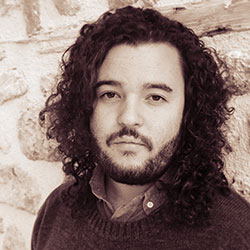
University of Cape Town
Rashid Epstein Adams is a South African ethnomusicologist/organologist currently based at the South African College of Music, University of Cape Town. In 2015 he graduated with his Bachelor’s degree in Music with an overall distinction, and distinctions in African Instruments, African Music and Worlds of Music. He has thus far picked up 19 awards for academic excellence in his fairly short academic career – culminating in publication of an article in the 2016 edition of Nota Bene, a journal based at Western University, Canada. Rashid has also presented papers on his research at a few local conferences, as well as at the 17th International Conference of the RIdIM – Association Répertoire International d'Iconographie Musicale, which took place in Athens, Greece, in October 2017.
Currently Rashid is working towards the completion of his Master’s degree in Music, and is part of the Recentring AfroAsia cohort of students. His Master’s research examines the dispersion of several instruments and instrument types from various parts of the Indian Ocean world to Madagascar. Having noted striking similarities between certain Malagasy instruments and several examples from Southeast Asia, East Africa and Arabia, the research is situated in the pre-colonial period in which many contacts and exchanges with Madagascar are said to have occurred. By incorporating a wide range of sources from various disciplines, Rashid intends to present a preliminary multidisciplinary model for historical reconstruction in which comparative organology (the comparative study of musical instruments) is emphasised. Whilst Rashid is fluent in English and Afrikaans, his current research has required him to acquire a basic understanding of spoken and written French, which he has done through online and face-to-face classes.
A significant theme in Rashid’s current research is the examination of symbolism in Malagasy material culture and folk art. On course to complete his dissertation in early 2018, Rashid’s research project saw him conduct fieldwork in July and August 2017 in Madagascar and Reunion, where he conducted several interviews with prominent scholars and visited musical instrument museums, also photographing and collecting several traditional Malagasy instruments – all elements imperative to his current research project.
Publications
An online version of Rashid’s article in Nota Bene can be found at:
http://ir.lib.uwo.ca/notabene/vol9/iss1/4/
Ola Adebola
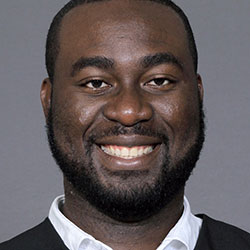
University of Cape Town
Ola Adebola is currently an Honours student at the South African College of Music, University of Cape Town. His research is titled ‘The influence of Islam in the secular music of medieval Ethiopia: A historical and analytical study of the qiñit and the maqÄm between the 7th century and the 12th century’. It is often challenging to distinguish religiously oriented influences such as Islam, because the history of Ethiopia and Arabia is very complex and they share early developmental legacies alongside Christianity and Judaism, as well as other geographically related cultures. However, a distinctly Islam-oriented culture emerged among the Muslim population of Ethiopia; the Wollo and Harari people embody the manifestation of Islam in Ethiopia. Ola’s research aims to consolidate our knowledge of the interconnectedness of the Arab world and the east coast of Africa, particularly Ethiopia, by examining each modal systems (the qiñit and the maqÄm) in Ethiopia and the Arab world respectively, and comparing them to see the similarities, differences and overlapping of influences in the two modal systems.
Ola speaks and writes fluently in English and Yoruba. His research is being conducted solely in English.
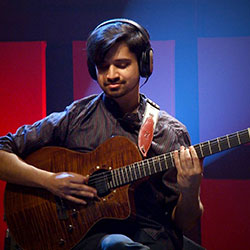
Mark Aranha
University of Cape Town
Mark Aranha is a Master’s candidate at the South African College of Music, University of Cape Town. His current research covers the music, social formations and origins of the Jews of Cochin and the Mappilas, two centuries-old communities that developed as a result of interactions between pre-colonial maritime mercantile groups and native Malabar society. While very few Cochini Jews remain, the Mappilas are a thriving community in the modern Indian state of Kerala where Mark will be carrying out his fieldwork.
While he is fluent in English and Hindi, with an interest in French and Arabic, his research will be conducted in English.
Mark is a guitarist, educator, composer and producer, working with several artists in India, most notably Susmit Sen (Indian Ocean) and Sumangala Damodaran. He also holds an MBA and a Bachelor’s degree in Economics, and has previously held management positions in the corporate world before making the moving to music.
Engela Britz
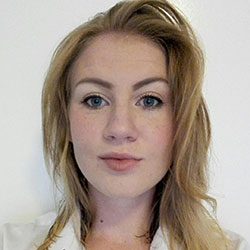
University of Cape Town
Engela Britz is studying towards a Master’s degree at the South African College of Music, University of Cape Town. Her research is focused on the history and social role of lute-like instruments in the Indian Ocean, with a specific interest in the ramkie – a southern African lute. This forms part of her broader research into the music of the rieldans, which is an indigenous southern African dance form characterised by its distinctive footwork, animal mimicry and courtship motives.
Her fieldwork is based in South Africa where she works with rieldans musicians and instrument makers. She speaks Afrikaans and English, and relies mainly on the former for her research.
Patricia Chipangura
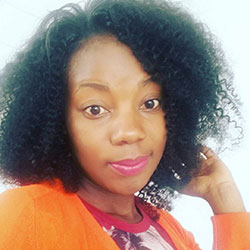
University of Witwatersrand
Patricia Chipangura is studying towards an Honours degree in Heritage Studies in the Department of African Art History, Wits School of Arts, and Faculty of Humanities, University of the Witwatersrand, and is a Wits City Institute Mellon Recentring AfroAsia Honours Fellow. The title of the research report that forms part of her degree is ‘An analysis of the presentation of material culture displayed in Zimbabwean museums generated through contacts with the Indian Ocean trade route (800 – 1700AD)’.
Raphunga Chuene
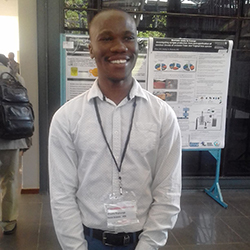
University of the Witwatersrand
Raphunga Chuene is studying towards a master’s degree in the Department of Anthropology at the University of the Witwatersrand. His research focus will be on migration to the cities and how such migrations influence new forms of identifications through performances.
He will be doing fieldwork in Newtown (Johannesburg) with a group of artists. He speaks Sepedi, English and Tshivenda ; he will be using English to conduct his research.
Raphunga is currently a tutor for second-year Anthropology students at Wits. He is also a poet and performer, and contributes commentary on social and political affairs to Express Impress Organization. You can read some of his writings at http://www.expressimpress.org/tag/raphunga-chuene/.
Bronwen Clacherty
University of Cape Town

Bronwen Clacherty is a PhD student at the South African College of Music, University of Cape Town. Her research is focused on investigating Zanzibari women’s roles in the interaction between East Africa and Asia before the 1500s, drawing on various sources including oral history and particularly songs and stories. She has discovered in her preliminary research that much of women’s history is missing from the political and formal historical narratives, and is aiming to find at least some traces of women’s involvement in the trade networks across the Western Indian Ocean.
Bronwen works in English, and is currently learning Kiswahili which she will use in her fieldwork in Zanzibar. She will conduct this fieldwork in Stone Town with musicians at the Dhow Countries Music Academy and in the villages of Jambiani and Makunduchi, where she will work with a translator to interview local historians, musicians and community members.
She is doing her doctorate through thesis and performance, so in her final year she will be producing musical performances that draw on the material from her research. She hopes to collaborate with Zanzibari musicians and artists as well as musicians and artists involved in the Recentring AfroAsia Project. Bronwen is a performing musician: she plays various percussion instruments (congas, vibraphone, marimba, cajon), and she sings and plays the umrhubhe and uhadi (isiXhosa bows). She is currently co-directing a musical production for the RAA Project with Mark Arahna. The production, which will premiere in September 2018, will collaborate with writers, musicians and artists who are part of the RAA Project to create a musical story based on the interactions between Africa and Asia.
You can watch videos of Bronwen performing on YouTube: https://youtu.be/WeLJsW-oJA8
Ernie Koela
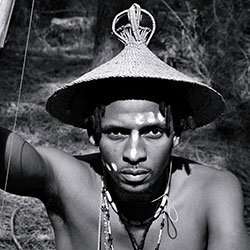
University of Cape Town
Ernie Koela is an Afrikan music disciple, a Consciously black Afrikan multi-instrumentalist, traditionalist composer, writer, poet, playwright, director, singer, co-founder of Azanian Aesthetics, academic, multi-instrument maker and dancer. He plays a variety of instruments such as the berimbau, uhadi, umakhweyana, Afrikan percussion instruments such as the dunn-dunn and djembe, the mbira ,nyunga-nyunga , chitende, timbila, umrhubhe and guitar. He has performed at the international fringe festival in Edinburgh, the Grahamstown Arts Festival, the Riaz Festival in Mozambique and UCT Ibuyambo shows African Groove, Jarabi, Simbi and Under the Skies. He believes Afrikan music is an ancient medicine designed to open the imaginations of those lost to the broken world today.
Ernie is currently enrolled at the University of Cape Town for a Master’s degree in Afrikan music studies, with a focus on the centrally braced bow as a key artefact, spiritual talisman and art h’story that connects the continents of Afrika and Asia musically, culturally and h’storically. He has researched on the ground in three countries searching for centrally braced bows – namely India, Mozambique and South Afrika (Swaziland and Kwazulu-Natal) – before the Recentring AfroAsia Project commenced and during the programme in 2017.
He speaks both isiXhosa and English, and is set on learning Portuguese and Sesotho. Personally, he occupies most of his time unpacking what it means to open one’s inner eye, ears and mind when undergoing physical and spiritual reconstruction through traditional music. He does this form of introspection and re-imagination experimentally with a group named Azanian Aesthetics. This formation aims to bring the music of the people closer to the peoples, both in imagination and in reality. He is a co-founder of Indigenous Too which has travelled both locally and abroad in search of indigenous master musicians and instrument makers. The project attempts to bridge an intergenerational gap, created by modernity, that exists between contemporary young black peoples and older, rural black people’s personal experience, knowledge and information. As a performer he goes under the name Mntana wexhwele: here he delves as deep as he can go into the trance that is Afrikan music spirituality. He hopes to release his first body of work by the end of 2017.
Joshua Kumbani
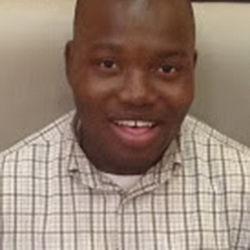
University of the Witwatersrand
Joshua Kumbani is studying towards a PhD in Archaeology in the School of Geography, Archaeology and Environmental Studies at the University of Witwatersrand. He comes from Mwenezi, Zimbabwe, and obtained his Honours and Master’s degrees in Archaeology from the University of Zimbabwe. His research interests are ethnomusicology, archaeomusicology, archaeology and heritage management.
The focus of Joshua’s research is investigating the traces of musical expressions in the archaeological record of the southern Cape through literature review, inventorization, artefact analysis and experimentation. In doing so, he wants to expand the criteria for the recognition of musical expression in the southern Cape archaeological record. As part of his fieldwork he will visit the Iziko Museum in Cape Town and Bloemfontein Museum in order to get hold of the music-related archaeological artefacts that have been found from the archaeological record. He will also participate in Klasies River excavations every year with my supervisor and other students.
Joshua speaks English, Shona and Tsonga/Shangani; he uses English for his research. He has produced the following works for publication:
Mercader, J, Patalano, R., Favreau, J, Itambu, M, Kumbani, J. & Marufu, H., 2016. ‘Acheulean prepared core technologies from the eastern Zimbabwe Escarpment, Maunganidze (Manicaland)’.Journal of Archaeological Science: Reports 8: 47–62.
Kumbani, J. Forthcoming. ‘Integrating archaeomusicology and ethnomusicology in the investigation of the significance of music and dance among Karanga communities in Zimbabwe’.
Kumbani, J. Forthcoming. ‘An analysis of faunal remains from Chibwe site, Eastern Zimbabwe’.
Valmont Layne
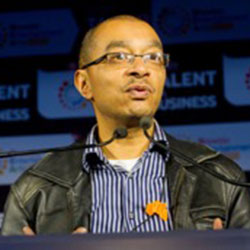
University of the Western Cape
Valmont Layne is currently a PhD candidate in History and holds a Mellon Fellowship at the Centre for Humanities Research, University of the Western Cape. He is also a Visiting Scholar at the Interdisciplinary Centre for the Study of Global Change at the University of Minnesota, Minneapolis USA through December 2017.
In his career, Valmont has pursued questions of justice and equity as a musician, curator, activist and arts administrator. He completed a Master’s degree at the University of Cape Town in 2005, focusing on jazz, social dance and vernacular music in the Western Cape. He spent ten years at the District Six Museum in Cape Town where he established the Audio-visual Research Archives and its collections of music and oral histories – focusing on the music and culture of District Six and the inner city. He has curated and performed with a number of projects relating to the music and cultural life of District Six before becoming Director of the Museum in 2005.
Valmont has participated in a range of international museum, heritage and human rights programmes, such as the Swedish African Museum Programme and the International Coalition of Historic Site Museums of Conscience, where he served on its International Board.
He has also been part of the team at the Klein Karoo National Arts Festival, one of South Africa’s premier multi-disciplinary arts festivals. More recently he has worked as Secretary General of Arterial Network’s South African Chapter, where he coordinated cultural policy advocacy, research, and monitoring of freedom of creative expression.
Nonofho Mathibidi Ndobochani
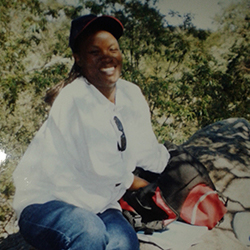
University of the Witwatersrand
Nonofho Mathibidi Ndobochani is studying towards a PhD in the Department of Archaeology, School of Geography, Archaeology and Environmental Studies, at the University of the Witwatersrand.
Her research investigates the origin and evolution of the cattle post system, and factors that led to the innovation or adoption of this system among the Tswana in the last 500 years. Cattle posts did not only serve as an ecological strategy and a tool for social wealth and political expansion; they also facilitated vigorous takeover of grasslands, population movement and interactions amongst ethnic groups.
Nonofho will be conducting ethnographic surveys and cultural mapping (for “ground truth” purposes) in Botswana and South Africa. For her archaeological work she will carry out spatial analysis of change and continuity in livestock enclosures at a pre-colonial Tswana occupation site in the Suikerbosrand area in South Africa. She will conduct phosphate analysis and generate a distribution map of phosphate readings to investigate the changing relationships through time in numbers and sizes of livestock enclosures.
Nonofho speaks and writes Setswana and English. In her research she will mainly use English, and also use Setswana during ethnographic surveys and cultural mapping.
Chumani Maxwele
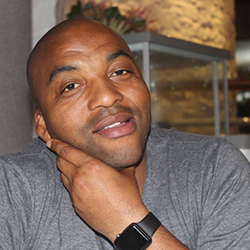
University of Cape Town
Chumani Maxwele is a student at the University of Cape Town, and is currently reading towards an honours degree in political science, specialising in African Studies. The focus of his dissertation is on the recent decolonial student activism in post-apartheid South Africa, looking at whether the aims and objectives of the current student movement post-1994 align with those of student movements prior to 1994. He is planning to read for his master’s degree and his PhD.
Chumani is the student activist who threw poo at the statue of Cecil John Rhodes at UCT, and thus he was the catalyst of the most influential student movements in post-apartheid South Africa, that is, #RhodesMustFall and #FeesMustFall – attempts to confront white power and systematic racism at UCT as well as in South Africa at large. His action sparked a debate about colonial statues and symbols, and consequently gave birth to the #RhodesMustFall student movement which quickly escalated to become #FeesMustFall, involving universities across South Africa.
Chumani has also been actively involved in the #EndOutsourcing Workers and Students Movement which aimed at ending exploitation among Black poor workers in South African universities, advocating for workers being permanently employed by universities and thus getting a living wage. He is among the very few young people in South Africa who confront structural and everyday racism head-on. His work and interests involve community activism, including advocating for the rights and voices of the marginalised people in society.
He has been actively involved in helping PhD and master’s students around the world who are doing research and writing their dissertations. Students have been coming to South Africa or using other forms of communication just to interview him about student activism in South Africa and his role in it.
Mapule Mohulatsi
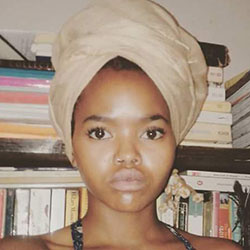
University of the Witwatersrand
Mapule Mohulatsi is registered for an Honours degree in the Department of African Literature, University of the Witwatersrand, and is a Wits City Institute Mellon Recentring AfroAsia Honours Fellow. The title of her research report is ‘Radio Islam’s Soweto youth listeners: Media, religion, and audience’.
Witness Mudzamatira
University of the Witwatersrand
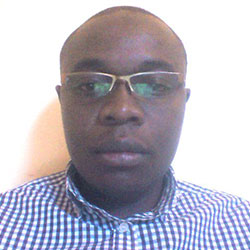
Witness Mudzamatira is a PhD candidate in the Department of Geography, Archaeology and Environmental Studies, at the University of Witwatersrand. His research is titled ‘Spatial information technology and heritage management in the southern Gauteng Province, South Africa’.
The research relates to the Recentring AfroAsia Project in that the stone-walled ruins that form the focus of the study are dated within the period 600–1300 AD. The research will strive to find reasons why there is little historical content available for this period. It will be done through a study of publications covering the period.
Neo Muyanga
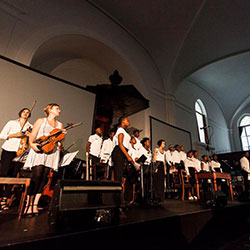
University of Cape Town
Neo Muyanga is working towards a Master’s degree based in the Centre for African Studies and the Drama Department at the University of Cape Town. He is a composer and musical dramatist whose work centres on the study of practices and strategies of and for musicking in pre-colonial Africa, as well as the study of strategies employed to preserve these old modes of indigenous ‘knowing’ and ‘musicking’ within post-colonial Africa and its global diaspora. His work also seeks to highlight contemporary examples of music drama that aim to augment and extrapolate from the established patterns of indigenous African musicking and which propose a new praxis from the global South.
The pursuit of this research takes place through musical practice, the study of extant literature, and recordings and interviews with practitioners. As a composer himself, he takes responsibility for mounting music productions that elaborate on the themes outlined above – in a variety of formats including live onstage, in studio recordings and in art installations – where this often involves collaborating with other artists, academics and heritage institutions.
He has conducted interviews, collaborations and performances at the following sonic spaces and with the following partners: Artscape Theatre (Cape Town city centre), Guga S’thebe Centre (Kwa-Langa township), the Methodist Church, False Bay Circuit, Khayelitsha (Cape Town), El Warsha (downtown Cairo, Egypt), the Goethe Institut (downtown Salvador, Brazil).
He speaks Sesotho, isiZulu, isiXhosa, English, Italian, Portuguese (intermediate), Spanish (intermediate)and German (intermediate) and has used all of these languages in the course of his research.Neo’s work can be explored on his website:
www.neosong.net
Ramabina Mahapa
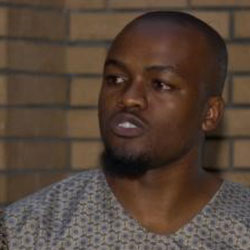
University of Cape Town
Ramabina Mahapa is currently completing his Bachelor of Social Science Honours in the Centre for African Studies at the University of Cape Town, focusing on the role of civilian-driven violence in the genocide of hunter-gatherer societies within settler colonies.
His research involves a comparative study of the Cape San people, Queensland Aborigines and Native Americans of California. Central to his research topic is the question: Does the concept of civilian-driven genocide provide a better understanding of the genocide of the Cape San peoples, Queensland Aborigines, and Native Americans of California?
He speaks Sepedi and English, and is conducting his research work in English.
Sikelelwa Mashiyi
University of the Western Cape
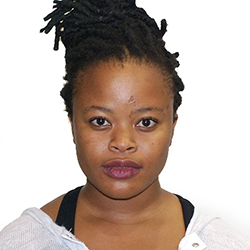
Sikelelwa Mashiyi is a Mellon Mays Fellow in the Department of Anthropology at the University of the Western Cape, working towards a master’s degree. Her research focuses on mapping the underground world of Spaza hip-hop, looking at it in the specific location of the township of Khayelitsha where she is conducting fieldwork. She uses both English and isiXhosa in her research.
She is interested in portraying the main characters – artists, producers, agents, audiences – and the live scenes, the performances, the music that is locally produced and consumed. How does an artist become famous? Why does this musical genre appeal to people? Which kind of imagination does Spaza hip-hop open up? What are the meanings of using your ‘own’ language instead of English? How to understand the fact that Spaza hip-hop, even if it has been around for years, has not yet established itself within the international market? What are the differences between hip-hop in Cape Town and Spaza hip-hop?
Sikelelwa’s research moves away from scholarship that has analysed Spaza hip-hop only as a musical genre. She would like as well to go beyond approaches that focus on processes of ‘localisation’ and appropriation of global cultural commodities. In her research she would like instead to explore further issues of identity, ethnicity, race, citizenship, and masculinity – issues that are crucial to the understanding of post-apartheid South Africa. How to understand this musical phenomenon against the backdrop of contemporary South Africa?
She is also interested in exploring further the fashioning of ethnic and gendered identities that emerge through music. How do Xhosa men negotiate this masculine space of hip-hop to limit it or open it up for female Spaza hip-hop artists? How do female Spaza hip-hop artists get into this space, and what do they have to do in order to ‘make it’?
With her research, she would also like to draw linkages between music and ‘tradition’, showing continuities and breaks between rapping and modes of praise poetry, speech and oral performances that are part of a cultural Xhosa background. It would be of particular interest to push these links further, both in terms of music and language, by examining selected Spaza performances and songs in relation to ‘precolonial’ recordings hosted at the International Library of African Music (ILAM) at Rhodes University.
Seshadari Moodley
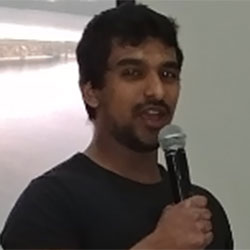
University of Cape Town
Seshadari Moodley is studying towards a Master’s degree in the Department of English Language and Literature at the University of Cape Town – he likes to insist that it be called the Department of Literary (and Cultural) Studies.
In 2017, he has focused his research around the ‘repressive hypothesis’ by using this hypothesis to show the ways that racist and colonial ideas are introjected onto the minds of repressed people in colonial, post-colonial and neo-colonial countries. The repressive hypothesis, which was codified by Herbert Marcuse (but arguably predates him), is an attempt to psychoanalytically analyse power relations – particularly the relation of the ruling class and/or the state to the individual. According to this theory, the values of those in power are adopted by the rest of society via ideology and other means, analogous to the way that the superego is formed.
Seshadari argues that this can be particularly seen in and applied to the writings of Frantz Fanon, who uses psychoanalysis to describe for example how inferiority complexes are formed among people of colour in post-colonial countries; how and why people of colour identify with and attempt to emulate their oppressors; how one-dimensional identities are formed; and the relevance of the manipulation of desires in repression. Seshadari applies this theory to the writings of various and diverse thinkers such as Ngu Ìgi Ì wa Thiong’o, Ashis Nandy, Michel Foucault and Edward Said, who add important insights that modify and strengthen the repressive hypothesis.
He speaks English and Afrikaans, and basic Spanish. He uses English for his research.
Seshadari is also an aspiring novelist and does lots of creative writing. He used to be a serious pianist but hasn’t practised much over the past few years. Being part of the Recentring AfroAsia Project and surrounded by many talented musicians has sparked his musical interest and inspired him to start practising again.
He is interested in the strength sports (powerlifting, weightlifting, strongman etc.) and competes in powerlifting.
Publication:
Moodley, S. (2017) ‘Shortbread’, in CEA Greatest Anthology Written. Cape Town: Celenic Earth Publications.
Robert Tendai Nyamushosho
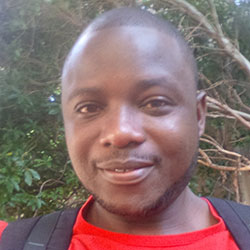
University of Cape Town
Robert Tendai Nyamushosho is working towards his PhD in the Department of Archaeology at the University of Cape Town, under the supervision of Professor Shadreck Chirikure. His research in the Recentring AfroAsia Project focuses on the archaeology of the period between the 7th and 15th centuries. Much of what we know about the rise of complexity in southern Africa in this period is limited to a few urban centres and enshrined in Eurocentric models of cultural change and exchange. Robert sees his role as finding the primary evidence that gives depth to the movement of material goods and people that traversed the coast-interior gradient, using African-centred models that are informed by African Philosophy. Currently his work on these issues is focused on the archaeology and anthropology of Mberengwa, a marginalised area in southern Zimbabwe. He will be collecting various datasets from selected sites using archaeological surveys and excavations, and hopefully the data generated will contribute to enhancing the AfroAsian community of scholarship.
Examples of his work can be found at:
- https://www.researchgate.net/profile/Robert_Tendai_Nyamushosho
- https://uct.academia.edu/RobertTNyamushosho
Kershan Pancham
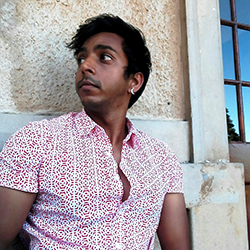
University of Cape Town
Kershan Pancham is studying towards a PhD in African Studies at the University of Cape Town, based at the Centre for African Studies.
His research focus is organized around these questions: ‘How do/don’t we do this (research, knowledge, education) work as acts of healing our ancestors and ancestry, instead of as being the ones who sell our ancestors’ graves? How can we do this work as acts that liberate entire lineages?’ These questions come from interpolations and elaborations of reading African and South Asian histories from Durban in the form of sacred and secular idioms, between what came to be Zulu and Indian cultural formations in the South East of Africa from the late 19th century to the early 20th century.
The research involves both ethnographic and archival work about healing and memory, archive and materials, and how we do our knowledge work. It adopts an ethical posture to do work with the dead rather than work about the dead, and Kershan welcomes interest from others who are similarly postured.
As part of the research work, he is reviewing epistemologies and cosmologies from the precolonial to the digital periods, in the form of performative texts and archives – monuments, rituals, documents, festivals and also memorying. He works primarily in English, and is learning Hindi and Sanskrit.
Here are some links to other work by Kershan:
- TEDxUCT 2014: “Ways of Knowing: BRICS, masquerades, and Other things”.
- It Gets Better Campaign , Cape Town:
- TEDxCapeTown: “Mirror mirror on the wall, who’s the ‘me’ of them all?”
- A film on South Asian histories in South Africa: “Homecoming” (trailer; full movie).
Dahlia Patsika
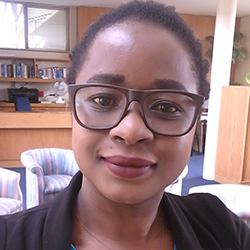
University of Cape Town
Dahlia Patsika is registered for an Honours degree in the Department of Social Development at the University of Cape Town. She is a women and gender activist and also a youth advocate.
Dahlia is from Zimbabwe, and Shona is her first language; she will be conducting her research in English. Her research focus will be on human migration, and specifically on the socio-economic life chances and experiences of young migrants – mainly their education and employment. This research will be carried out in Cape Town’s townships.
In the Recentring AfroAsia project Dahlia’s research will focus on the factors that influenced human migrations in the period 700 to 1500 AD, and the effects that trade patterns in Africa (especially the slave trade) had on young people.
Lindelwa Pepu
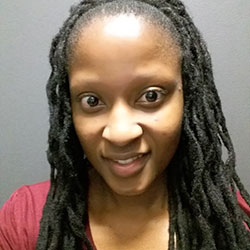
University of the Witwatersrand
Lindelwa Pepu is studying towards a Master’s degree in the Department of Heritage, University of the Witwatersrand. Her research project focuses on how museums preserve, display and engage musical bows. She aims to analyse, from a curatorial perspective, how Museum Africa in Johannesburg has collected, stored and research the uhadi bow in its collection. In order to extend and substantiate this research, she will also examine the Siddis, who are African-Indians and with whom the malunga bow originates; this bow has correlating characteristics to the uhadi bow.
This study is prompted by the initiative to restore a neglected and forgotten area of musical instruments, particularly those that document and encapsulate disappearing traditions and cultural practices. As part of the study Lindelwa is conducting fieldwork in Johannesburg with Museum Africa and individuals who are uhadi bow players. The individual players speak English and use Xhosa terminology for explaining their musical instruments; Lindelwa uses these languages for the research, and writes in English. Every recording of interviews conducted as part of the research will be included in an appendix to the final research document.
Memory Reid
University of the Witwatersrand
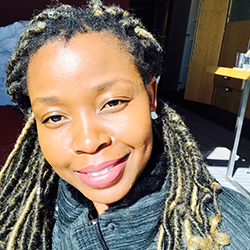
Memory Reid is studying towards a PhD in the School of Geography, Archaeology and Environmental Studies in the Department of Geography at the University of the Witwatersrand. Her research study is titled ‘Perspectives on the Impacts of Climate Change and Energy Security on Urban Livelihoods of Poor Households in Harare, Zimbabwe’.
Climate change impacts have the potential to affect energy security in Southern Africa. This exposes the region’s vulnerability to the impacts of climate variability and the predicted climate change, which is worsened by its low adaptive capacity. Memory’s study aims to investigate climate change and energy security in Southern Africa, and how the climate change and energy security nexus impacts on poor urban livelihoods in the informal sector. The informal economy is a source of livelihood for the urban poor, particularly women, hence the study looks exclusively at women in the informal sector. Adaptation measures to the impacts of climate change in cities have focused mainly on building resilience of urban areas to infrastructural damage and disruptions of services due to extreme weather events, with limited focus on climate change impacts on sources of livelihoods of the urban poor.
Memory’s research, which will be carried out in Zimbabwe, explores how the urban poor build resilience to the impacts of climate change and energy security, as well as the adaptive strategies they have employed to do so to protect their sources of livelihoods. This will involve household surveys of women in the informal sector whose trades are energy dependent, and also interviews with key government departments and institutions ranging from those that manage energy, water and climatic studies to those responsible for labour issues and small to medium enterprises. Memory speaks English and Shona, and will make use of both these languages to conduct her research.
Sophia Olivia Sanan
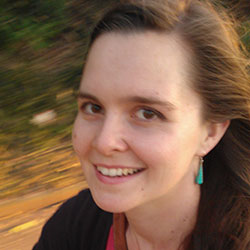
University of Cape Town
Sophia Olivia Sanan is a PhD candidate in the Department of Sociology, University of Cape Town, and a Research Fellow with the Recentring AfroAsia Project. She has been working in the fields of visual culture and arts education in South Africa for the last nine years. She holds a Masters degree in Sociology from the Universities of Freiburg in Germany, Jawaharlal Nehru University in India and UCT, an Honours degree from UCT in Political Philosophy and Social Theory, and a BA in Visual Communication from Stellenbosch University. Through her work as a scholar, lecturer and researcher she has focused on the themes of art and design education for social justice; race and institutional transformation in higher education; cultural policy development in Africa; and the socio-cultural dimensions of African migration in Europe, South Africa and India. Her studies, research work and personal life have allowed her to spend extensive time in North India, which she considers a second home.
Her PhD research is a comparative study on race, ‘foreign-ness’ and belonging in migrant African micro-communities in Cape Town and New Delhi. In both of these cities, she will engage with both self-identified ‘locals’ and African ‘foreigners’ to explore personal narratives, collective imaginings and social tensions through visual research methods and the study of cultural and aesthetic expressions. By using a visual approach to data collection, she aims to create an inclusive dialogue-based research process. The visual, textual and audio-visual mapping processes conducted in both cities will aim to illuminate a) the imagined Africa in India and South Africa that informs the perception of ‘otherness’ expressed in moments of violence; b) responses, stories and narratives from the African diaspora to this collective imaginary; and c) the dialogue, interaction and exchange that would result from these maps, stories and imaginations engaging with each other.The study is premised on the idea that engaging with the experiences of discrimination, marginalisation and violence felt by perceived ‘foreign’ communities in both India and South Africa may be instructive in understanding and responding to the construction of race and difference in both of these two global South urban environments. By drawing on histories of cultural entanglements between India and Africa, the study hopes to explore less violent contemporary possibilities for Afro-Asian connectivity.
Edward Sake
University of Cape Town
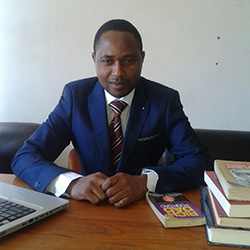
Edward Sake is a PhD candidate at the South African College of Music, University of Cape Town. His research focuses on Zimbabwean music and is titled ‘Zimbabwean Music Iconography: Archaeological and Archiving’. He will be doing his fieldwork in Zimbabwe, at the Great Zimbabwe site near Masvingo town as well as at the National Archives of Zimbabwe in Harare. He plans to do collaborative work with Professor Shadreck Chirikure and his UCT Department of Archaeology team. He speaks English and ChiShona and will use both languages for his research, though the latter will feature more prominently.
Alongside his research work, Edward is also active as a musician and teacher. He plays the mbira and coaches people in this instrument, and also trains people in Shona singing technique.
Jorge Iván Sepúlveda
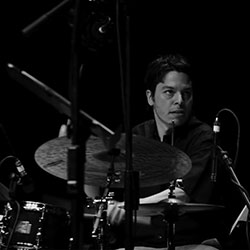
University of Cape Town
Jorge Iván Sepúlveda is studying towards an Honours degree at the South African College of Music, University of Cape Town. The main purpose of his research is on generating arguments to support the theory of the migration of xylophones between Africa and South Asia, without placing any of the two continents as the main source, but emphasising the idea that they came from one of the two places and then travelled to the other. For this purpose, the project proposes two fundamental instances: the first one, a literary criticism of authors who have written about the origin of xylophones in both continents, and the second one, an analysis of a case based on research to the atranatra xylophone from Madagascar and the jatung utang xylophone from Borneo Island.
In doing this research Jorge wants to contribute to the telling of a story of a part of humanity that is not widely spoken about. Through increased recognition of these musics, his research aims to contribute to the clear idea that the music, instruments and broader culture of these communities in these specific places are just as important as any Western music, instrument and culture. And through this clarification, the research aims to add to the undoing of the cultural hierarchies that have made us believe that one particular human civilisation is superior to another.
Jorge’s home language is Spanish, and he also speaks English and basic French. Given that his work is concerned with the recognition of two instruments within the cultures of Madagascar and on the island of Borneo, he uses English and French to do the research.
Jorge is one of the current generation of percussionists and drummers influenced enormously by the traditional music of the Colombian coastal regions. His approach to music, based on tradition and urban musical languages, has led him to an interpretative development of rhythm treatment linked to a highly expressive experimental trend. He has participated in different music festivals across South America, and in a large number of recordings. Currently, in addition to directing his own sextet (Caída Libre), the Suricato group and an improvisation project, he also works with a number of musicians and groups including Curupira, Ricardo Gallo Cuarteto, Antonio Arnedo Cuarteto, Kike Mendoza Trío, Pársec Trío, Álvarez - Sepúlveda Duo, Gallo - Experimental Sepúlveda and Asdrúbal. He works as a drum professor at the Pontificia Universidad Javeriana, and at the Fernando Sor music school in Bogotá, Colombia.Since his arrival in Cape Town, in addition to dedicating his time to classes and his research, he has begun to create two musical projects with different musicians from UCT. These are:
the Sahel Trio, formed by three young creators from different countries who base their musical exploration on the sounds of the traditions of Mali, South Africa and Colombia, but which in turn weave contemporary and improvisational sonorities;
Project Inye. The versatility of the sonorities of the world is mixed together in a group like Inye. Incorporating one of the most representative instruments of Africa – Mozambique’s timbila – the group rediscovers how to relate it to a modern soundscape full of textures ranging from drum and base to Afrobeat and the dark rap/hip hop sonorities of the 1980s. Comprising four international artists from different latitudes, Inye is one of the most versatile groupings on the music scene in Cape Town. The band was invited to perform as opening act at the annual Bayimba International Festival of the Arts 2017 in Kampala, Uganda.You can find out more about Jorge’s music at:
www.ladistritofonica.com
Dineo Skosana
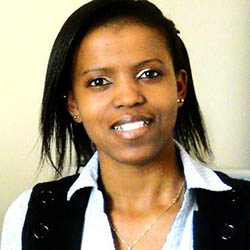
University of the Witwatersrand
Dineo Skosana is currently completing her PhD in Political Science in the Department of Political Studies at the University of the Witwatersrand. Her doctoral research explores the intersection of the mineral and heritage laws in South Africa through a case study of grave relocations by Glencore, a colliery mine based in Witbank, in the Mpumalanga province of South Africa.
Dineo’s research for the Recentring AfroAsia Project, titled ‘Refiguring Traditional Leadership’, seeks to explore the early contentious kinship theory, and to engage it alongside archaeological records and oral histories to understand the polity of chieftaincies in pre-colonial Africa. To unpack this history, she is interested in investigating the records of the old Indian Ocean trade routes to establish whether there was a connection between chiefly authority, locals and outside traders, as well as the politics thereof. She is hoping that these records will help to shed light on South Africa’s pre-colonial history, and contribute to our knowledge about the history of the institution of traditional leadership.
Her fieldwork for this research includes work on the Nhlapo Commission Records, South Africa, the Maritime Trade Routes Archives and the Old-World Trade Routes Archive.
She reads and writes English, Pedi, Ndebele and Zulu, and has had to use all these languages in order to understand the archival records in relation to oral accounts.
Publications:
- Skosana, D (2013) ‘The interface between tradition and modernity: An outline of the Kekana succession dispute and their encounter with the Platinum Reef Resource Mine’. New Contree 67 (Special Edition, December): 83–96.
- Skosana, D. (2017) ‘Protecting the dead: The South African National Heritage Resources Act in context’. In M. Christian Green, Rosalind I.J. Hackett, Len Hansen & Francois Venter (eds). Religious Pluralism, Heritage and Social Development. Stellenbosch: SUN MeDIA.
- Buthelezi, M. & Skosana, D. (in press) ‘The salience of chiefs in post-apartheid South Africa: Reflections on the Nhlapo Commission’. In Jean Comaroff & John Comaroff (eds), The Politics of Custom: Chiefs, Capital, and Culture in Contemporary Africa. Chicago: University of Chicago Press.
Cara Stacey
University of Cape Town
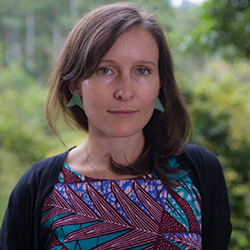
Cara Stacey is a post-doctoral fellow with the Re-Centring AfroAsia Project. She is based at the South African College of Music, University of Cape Town. Her doctoral work explored the contemporary music of the makhweyane bow in the Kingdom of eSwatini (formerly Swaziland).
Cara has a working knowledge of SiSwati and French. She is the acting coordinator for the Swaziland Traditional Music Association, and the International Council for Traditional Music country liaison officer for Swaziland. She also serves on the executive committee of the South African Society for Research in Music.
Her current post-doctoral project investigates music, sound and meaning within Ethiopian historical landscapes. With a multi-pronged research methodology (including soundscape recording, archival investigation, oral testimony and performance), this research aims to understand not only the biophony of the ancient, ox-ploughed fields of the Lalibela area in Ethiopia, but also the local soundmarks, acoustic ecology and secular musical practices that form the counterpoint to the famed Christian chants.
Beyond her academic work, Cara is a musician and composer. She has two albums out under her own name, Things that grow (2015) and Ceder (2018). She is a member of the Shh...Art Ensemble and a founder of the Betwixt concert series.
You can find out more about Cara’s work at www.carastacey.com.
Kristy Stone

University of the Western Cape.
Kristy Stone is working towards a PhD in History at the Centre for Humanities Research, University of the Western Cape. The title of her study is ‘Art and Affect: Encounters with objects of power in museums and archives’. Objects of power are typically classified in museums as charms, amulets or nkisi. These are objects whose very ‘being’ troubles conventional binaries of living/nonliving, and consequently are the foundations of a positivist ontology that presumes the material world is inanimate. Objects of power are therefore more than aesthetic, they point to other ways of seeing, thinking and being in the world. In her research Kristy explores how the ontological turns of new materialism and animism shift what it means to know, how we encounter objects, the questions we ask and correspondingly, our research practices.
She will be working with African and Asian objects to explore a pre-colonial history. She uses the concept ‘pre-colonial’ not as marker of linear time, but as a means of disrupting ways of being in the present. In this study, she uses art-making as a method to disorder, to experiment, and to creatively rework the archives.
You can see some of Kristy’s work at: http://www.chrflagship.uwc.ac.za/portfolio/a-map-of-suffering/, a Recentring AfroAsia Project/Centre for Humanities Research collaboration, with a musical score by Reza Khota (CHR Artist-in-Residence) and Shane Cooper, and animation by Kristy Stone.
Photo credit: Aidan Erasmus, Centre for Humanities Research, UWC
Genius Tevera
University of Cape Town
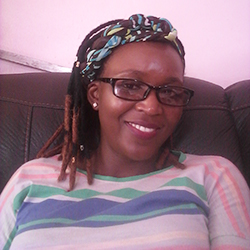
Genius Tevera is working towards her PhD in the Department of Archaeology at the University of Cape Town, under the supervision of Professor Shadreck Chirikure. Her research focuses on the interaction of archaeological/heritage sites with their communities. She explores how perceptions towards and values relating to management, archaeological practices and benefits have changed over time. This research is located within the frameworks of community archaeology and provides a critique on how research and/or management techniques have influenced community perceptions over time.
Genius’s research also provides a bibliographic account of research and management practices through different periods, precolonial, colonial and postcolonial. Currently her work focuses on the Great Zimbabwe world heritage site. Her research methodology includes archival research, interviews and questionnaires.
Vimal Thakor Vallabh
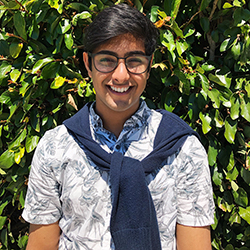
University of Cape Town
Vimal Thakor Vallabh is an Industrial Sociology Honours student in the Sociology Department of the University of Cape Town. He currently holds a Bachelor of Arts degree specializing in English Language and Literature and Industrial Sociology.
The focus of his work for the Recentring AfroAsia Project is on the intergenerational passing of traditional Indian creative design and sewing techniques in contemporary South African-Indian industrial society in the settlement of Tongaat. He has a passion for the narratives of individuals and how their personal histories affect their work, and how their work impacts their heritage. This project brings together the roots of Indian culture steeped in pre-colonial thought and brought to African shores, celebrating the coevality of skills, labour and culture. The exploration of Indian Diaspora culture is one he feels very enthralled about because of the richness of the subject matter.
Vimal is also a published poet, having published his first anthology entitled, Constellations in August 2017. He has worked closely with scholastic leaders in his home community for the revival and promotion of literacy. He has also partnered with various libraries to give resources and insight to young writers who share a love for literature. Vimal is currently working on his second body of work .You can find his published work in South Africa on https://www.exclusivebooks.co.za/product/9781974330157 and internationally on https://www.amazon.com/dp/197433015X.
